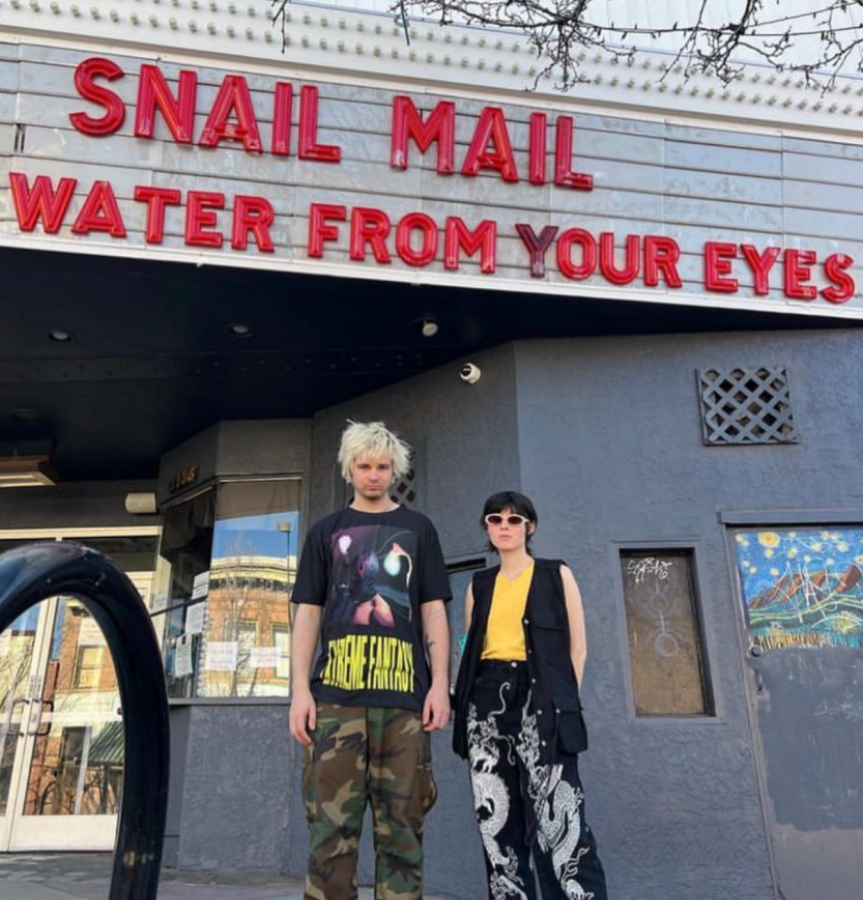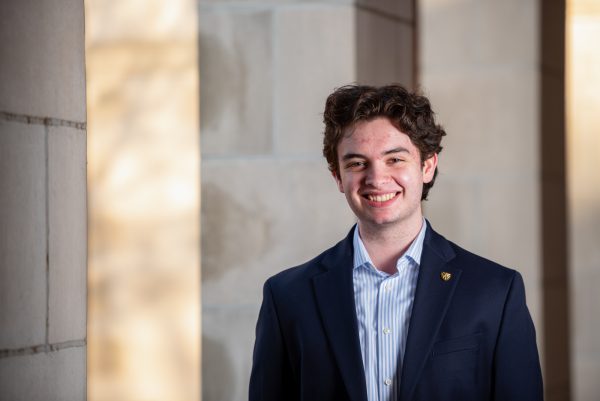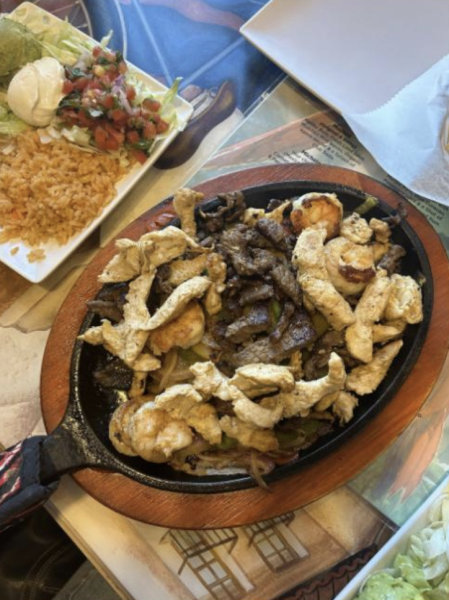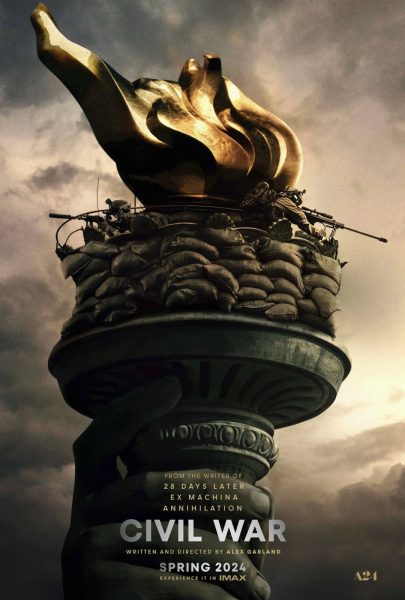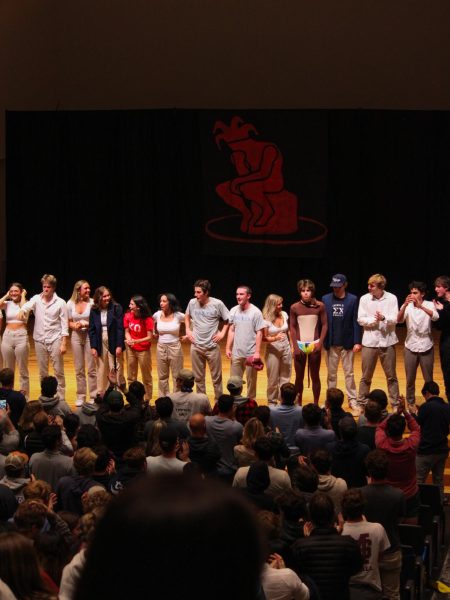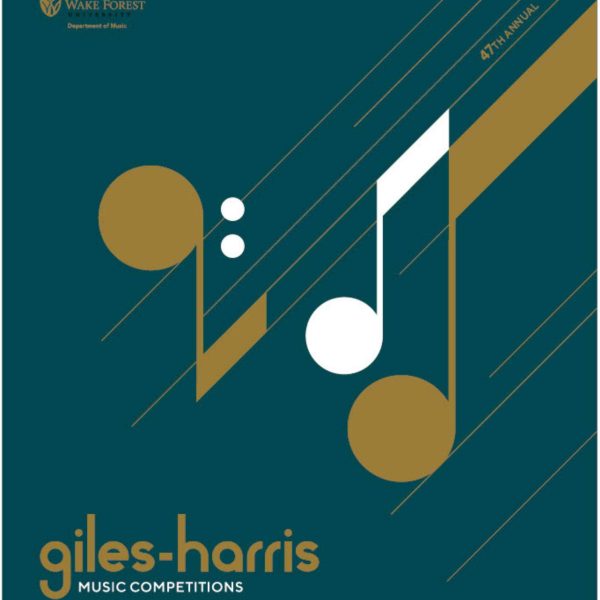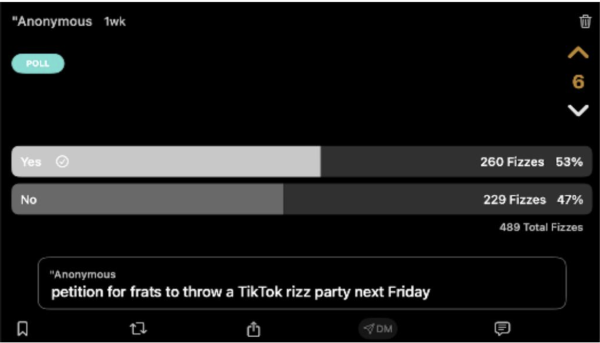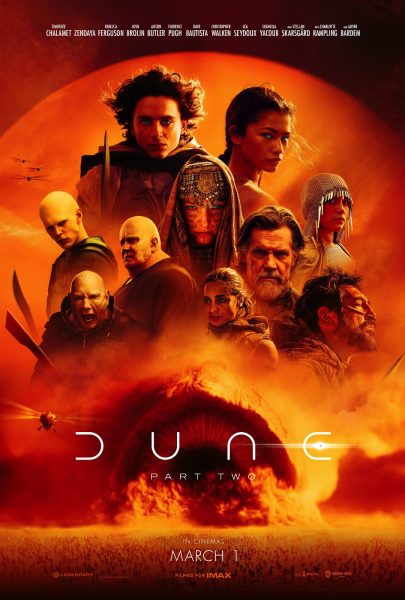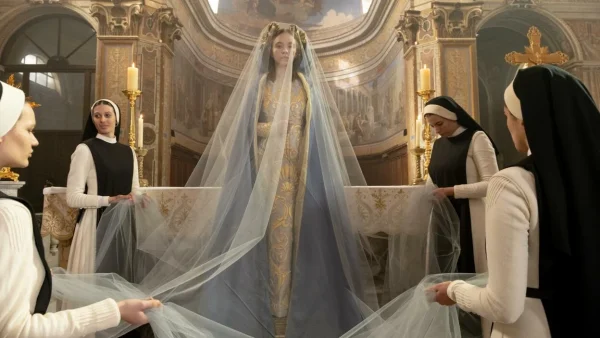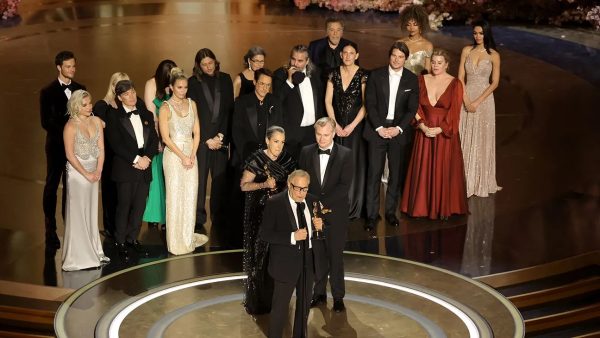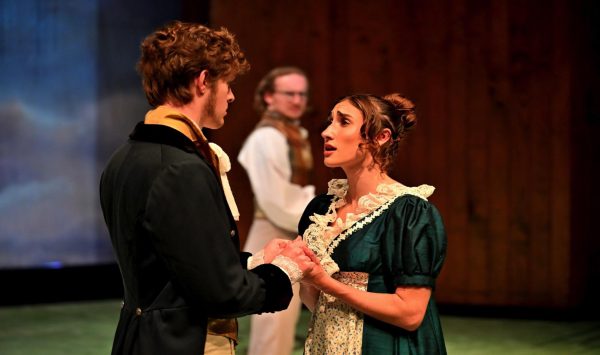The Old Gold & Black speaks to Water From Your Eyes
The group will be performing alongside Snail Mail in Winston-Salem on May 6
Nate Amos and Rachel Brown of Water From Your Eyes pose below a sign.
April 28, 2023
After our interview with Snail Mail this past March, Matador Records offered the Old Gold & Black the chance to speak to the indie art-pop group Water From Your Eyes ahead of the release of their new album “Everyone’s Crushed” in May and their supporting run for Snail Mail’s Valentine tour. The two-piece will also be accompanying Lindsey Jordan on her stop in Winston-Salem on May 6. We talked with members Nate Amos and Rachel Brown about their unique process, the films of Edward Yang and their favorite New Order albums, among other things.
Who are your top three favorite musical artists?
Nate Amos: Red Hot Chili Peppers, New Order and Everclear are the ones Rachel and I have in common.
You both have talked about being heavily inspired by New Order. What do you think is so unique about their sound that inspires you? What are your favorite songs from New Order?
Rachel Brown: I love Brotherhood.
NA: I really like “Brotherhood” and “Technique.” I think about Low-Life a lot in terms of album construction. This is something that a few of their albums have, but that eight-song format where you have fully fleshed out things. That’s the ideal length and amount of content for an album for extended format music like that, where the songs are slightly longer.
Off your album “Structure,” why is track five actually track six?
NA: The song “Monday” was a late addition. We just decided to leave it. There’s a Scott Walker album, “Climate of Hunter,” where some of the songs are just named “Track Three,” “Track Five,” etc. I thought the reasoning for that was really interesting because he said that giving the songs a particular title would add undue weight to one aspect of the song. He found that it would throw off the balance. I don’t even think that was necessarily true for this song. We just got used to it.
In your album “All a Dance,” you have talked about how every song is written from the perspective of a different movie character. What is so inspiring about fictional personalities that might not be the same with real people?
NA: For “All a Dance,” it was really just a mechanism for writing. Like a jumping off point.
RB: For the song “Monday,” in particular, Nate wrote that song as a song from a movie that only exists in his head. “When You’re Around” was also written for a film that was supposed to be made. I don’t think it’s necessarily that fiction is more inspiring than real life. I was in film school, so I guess movies have just always been a big part of my life. That’s not to say that the music isn’t inspired by real life, but I think it’s much easier to talk about how it’s inspired by fictional characters because you don’t have to disclose private information.
What are your top three favorite movies?
RB: My favorite is “Chungking Express.” I also really love “Spirited Away,” which I just watched for, like, the 15th time the other night. The train scene in that movie is just the most beautiful part of any children’s movie I’ve ever seen. My third favorite is probably “A Brighter Summer Day.”
Have you seen any of “A Brighter Summer Day” director Edward Yang’s other work?
RB: Not yet. I’ve been meaning to watch “Yi Yi.” I’ve been saving it because I know that it’s probably going to blow my mind. The thing about movies is when they’re too good, they kind of make me sad. I’m like, “Man, I want to make a movie.” I haven’t even finished the one I started making in college, so maybe when I finish my short film from five years ago, I will watch that as a celebration.
Rachel, do you feel like you try to incorporate visual art into your music more because you have a related background?
RB: Not necessarily. I find it in some ways difficult. Music videos make sense to me because they incorporate images and music. But when I’m writing music, it’s mostly words that come to mind more than imagery. Writing is a craft in itself, so just working on writing has affected how I write songs. I write them differently than when I was 17, which is good because I was writing really bad songs. But screenwriting is mostly just formatting. But in Water From Your Eyes, we don’t necessarily write very coherent stories. They’re more just vibes.
In previous interviews, you guys talked about how some of your songs started off as giant, eight-minute-long blocks of sound, and you cut down the individual elements until melodies start to come through. Why do you choose to do it that way? Would you ever release the unedited eight-minute tracks so that people could compare it with the final version?
NA: I think we’ve gotten pretty good at managing the conflict. When one of us wants to veto an idea, there used to be more discourse about that. Whereas now, when one of us says no to something, we both just accept that. Rather than trying to compromise there, we move on until something pops up that we’re both happy with.
RB: At this point, it gets more difficult just because it’s tiring to be playing shows every night and driving long distances. To some degree, it is overwhelming interacting with that amount of people every night, especially because you don’t interact with the same people. But I feel like we’ve gotten pretty good at it, too. Nate and I have been best friends for so long at this point that I feel like doing this project is just fun, even when it’s hard, just because at the end of the day we’re just hanging out. Being goofy.
What is the best part of collaboration? What’s the hardest part of it?
RB: I feel like the most difficult part of collaboration is that we can both be quite unwilling to compromise. The only time we really collaborate is in the lyric-writing process. I don’t have anything to add to the music, and if I do, it’s usually just vague concepts. I can’t be like, “You should put another C sharp.” I don’t know what Nate’s doing, he just shows me music, and I’m like “Man, this is crazy.” So the collaboration is sort of mostly in the lyric writing. It’s definitely gotten easier, but sometimes I want the music to say something, and Nate wants it to say something else. Or Nate wants it to be a certain way and I’m like, “No, I hate that.” We’ve gotten our conflict time down to minutes.
Your album, “Somebody Else’s Songs,” is full of covers of other people’s songs. The lineup is interesting because it ranges from songs like Eminem’s “Lose Yourself” or Carly Rae Jepsen’s “Call Me Maybe” to songs like “Scar Tissue” by the Red Hot Chili Peppers. How did you pick those songs? Where do you place humor in your music?
RB: Some of the songs are just songs I really like. I really wanted to do a cover of “Lose Yourself.” That was my choice.
NA: The cover thing started as production practice and exercise.
RB: Except “Everybody Wants to Rule the World,” which we made for my best friend Paul. “Hella Good” and “Call Me Maybe” were both Nate’s picks. “Scar Tissue” was both of us but also before we both realized that we actually loved the Red Hot Chili Peppers in a non-ironic way. “These days” by Nico, that was my pick.
NA: I was kind of obsessed with “Steppin’ Out” for a little while.
RB: “How Bizarre” was the first or second one we did. We played that live once. The Ween song was also Nate’s pick.
NA: I wanted to do a Ween song, and I knew that you liked “If You Could Save Yourself (You’d Save Us All).”
You mentioned Ween, do you think humor plays a role in your music?
RB: It’s not at the forefront of our process. By the very nature of our personalities, it just becomes apparent in what we do. But I don’t think humor is what we’re setting out to accomplish. We make music, and sometimes there happen to be funny parts about it. Like when we name a song “Track Five” and then it accidentally moves one song down. Then we just keep it because it makes us laugh.
NA: A lot of the elements of humor in our music are mostly just for us. It’s not like they’re jokes that would make an audience laugh, but there are a lot of things about our music that I find to be very funny. Going back to Ween, one of the things I really love about that band is that so much music is so self-serious and focused on this drama. In terms of the experience of being alive and what it’s like to be human, that’s only part of experience. Full-fledged drama is comedy to tragedy and everything in between, and that’s something that I think Ween understands really well. That’s something that we try to involve in our music because if everything is on the same part of the emotional spectrum, then it becomes static. And that’s just what it is. The lighter moments make the heavier moments heavier, the heavier moments make the lighter moments lighter. That is a form of dynamic tension and release, which is the most important aspect of any active art experience.


